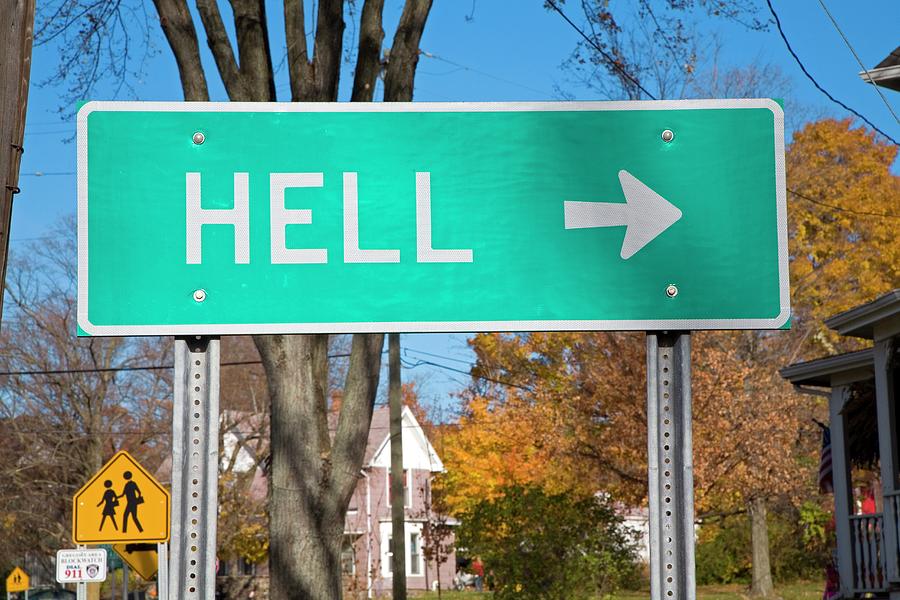
Life beyond the grave is for many shrouded in deep mystery—and is widely misunderstood
Christians sing of a time ‘when we all get to heaven’. Buddhists look to nirvana. For many of the Muslim faith heaven is a fount of material pleasures. The Hindu hopes to return in an improved state of being. And all assume their role in that future life begins at the moment of death.
This diversity of belief stems from a universal neglect of God’s fullest revelation of His will—the Christian Bible, and is rooted in the experiences of mankind’s first family some six millennia ago.
Adam’s Choice
The unveiling of events up to and surrounding the birth of our first parents is the ‘apocalypse’ of the Old Testament writings. The creation account was revealed to Ad[1]am just as the future was unveiled to the apostle John and are the incontrovertible revelation of the one and only creator God.
Adam relayed his story to future generations and it is recorded for us, especially, in chapters two and three of the book of Genesis. In disregarding this narrative lies the source of man’s ignorance of the facts of life beyond the grave.
Perfect Man
Blinded by disbelief, the modern world with its infinite range of ‘vain philosophies’ views man’s origin as a slow evolution from the primitive to the complex rather than the direct creative intervention of the all-powerful Creator.
Our first parents were created fully formed in a perfect body and in a perfect environment. As rational beings and equipped as they were with ability to reason they were free to choose their path in life. Presented with a choice and the pros and cons of their choice they hearkened to the subtle argument of the devil: ‘…I did it my way’.
The outcome is summed in the words of Solomon: ‘…There is a way that seems right to a man, but the end thereof are the ways of death’ (Proverbs 14:12), and this tendency, as Paul notes is ‘…enmity against God’. It sets unregenerate mankind firmly in the camp of ‘your father, the devil’ (John 8:44) and not in covenant relationship with Him through repentance and baptism.
When You Die
Christians, especially, are certain that the outcome is immediate access to heaven. many wonder: was he or she ‘good enough’? Just where is the dividing line?
All—both man and beast— will ‘return to dust’. But we are also driven by our motivating ‘spirit in man’—which leaves the body around the time of our death. That spirit, in fulfillment of the divine plan, remains in God’s care until supernaturally restored to life. Will You Go to ‘Hell’?
Since before creation, God planned to increase His spirit Family. and to this end He created a ‘clay mage’ of Himself (Adam and Eve) in which He set a motivating spirit’ that interacts with us through our nervous system.
As the Bible teaches, the human spirit can return and animate the body e.g. following divine intervention and of course in the future at Jesus’ return. And perhaps in so-called ‘near-death experiences’ (Luke 8:55).
It is not, however, conscious but passive. Guided by God’s word it is clear that ‘…in death there is no remembrance of you: in the grave [Heb. sheol, Gk. hades] who shall give you thanks?’ (Psalm 6:5), and ’…The dead praise not the LORD, neither any that go down into silence’ (Psalm 115:17).
Upon death the human spirits of all mankind pass into the care of our Creator to await a future resurrection: ‘…Marvel not at this: for the hour is coming, in the which all that are in the graves shall hear his voice’ (John 5:28).
Open to All
God’s invitation to become part of His Family is open to every human being, and: ‘..’ [God] is longsuffering to us-ward, not willing that any should perish, but that all should come to repentance’ (II Peter 3:9). Some, now in this life, respond positively, remain faithful till their end and will be transformed to spirit at his coming.
The majority now spiritually blinded by the Devil, will rest in their graves until resurrected in material form after the millennium. The blindness will pass and they may freely choose their future pathway: either embrace salvation through the sacrifice of Christ—or choose death and the destruction of their entire being by fire (Matthew10:28).
